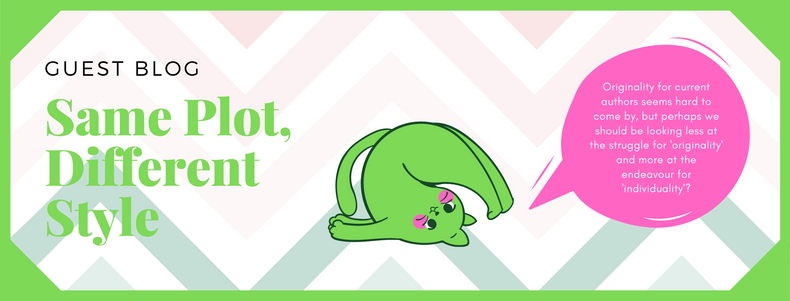By Crystal Pascale
Creating an original story is difficult nowadays. If one were to honestly critique their own work, one would have to frankly admit that it follows at least one of the seven archetypical storylines.
Does your character face dangerous monsters and journey on treacherous adventures?
Or maybe your character has only just discovered this new land, and whilst journeying this fascinating land they contemporarily face a self-actualising journey that results in them maturing and achieving independence by the end?
Perhaps your character starts out with nothing and ends up with everything in a classically contemporary rags-to-riches tale.
Or in a more tragic turn of events, your character ends up losing it all, resulting in despair, destruction, death, or all the above.
Whether it’s a voyage and return fable, a rebirth of some metaphorical – or if fantasy genre, then perhaps metaphysical – kind, or tragedy’s close sibling, comedy, it seems like all the variations of ‘once upon a time’ have been told before.
As a fictional writer, is it possible in the 21 st century to break this tale-as-old-as-time norm? Where is the gap for us newer authors?
These seven storylines are stereotypically cliché. Nevertheless, they are atypical for a reason. Perhaps if authors viewed these seven tropes as foundations rather than storylines, we might just find that newfound gap we are desperately searching for.
Trying to escape these seven plot types that form the solid canon of work of thousands of writers before us might well be useless. Instead, what happens if we stop running, and try transforming what we already have?
I don’t think there’s a better fit for the saying “if you can’t beat them, join them”.
If there is one thing that cannot be replicated in any lifetime, it is ourselves. What happens if a comedy centres around our own unique and quirky experience? Or instead of our hero achieving – or failing – self-actualisation, we actually hint at a true experience where maybe the so-called hero doesn’t quite reach either end, but some fine, weird line in between – because in reality, aren’t we all endlessly ‘still figuring things out’?
Just like our quest to create a story totally and utterly unique.
The truth is, like how we cannot ignore history if we want to improve the present, much is the same of these tropes. Perhaps our quest to seek ‘original’ should be tweaked to seeking something more ‘individual’, and in that, we may just find that glimmer of ‘originality’ we are desperately digging for.
These seven themes will roll around and around in cycles for centuries to come, but that doesn’t mean innovation can’t be created from them, if only we are brave enough to embrace our own stories and share them through these platforms.
In the words of Pulitzer-Prize winner Willa Cather, ‘There are only two or three human stories, and they go on repeating themselves as fiercely as they never happened’.
If all the patterns and combinations have been discovered, then what better to do than discover what happens when you build upon it?

